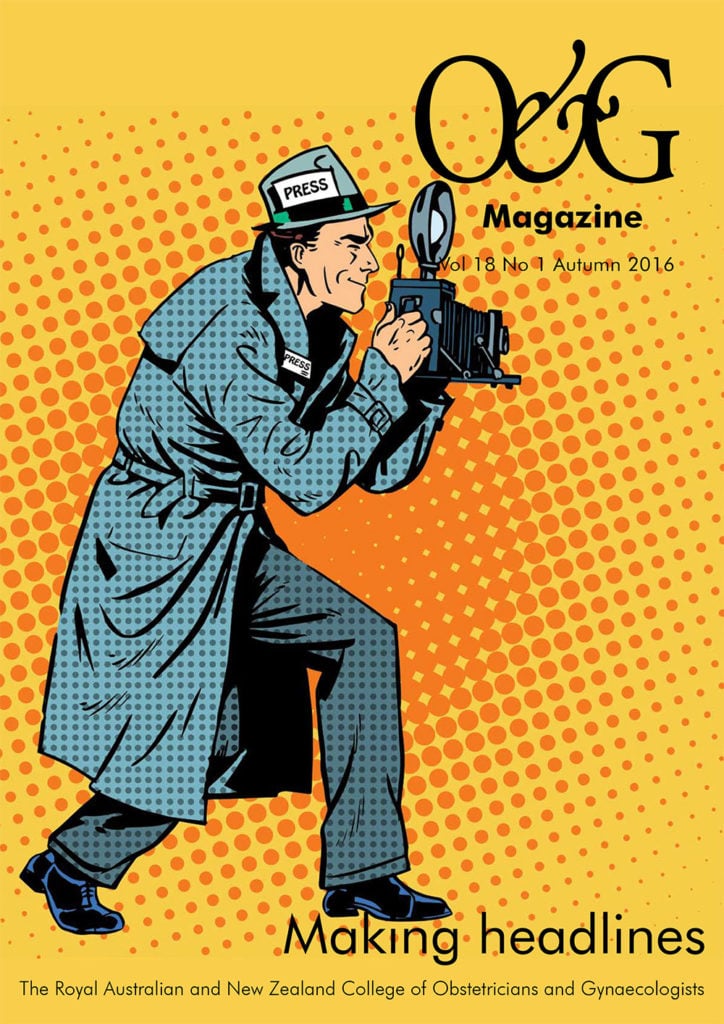I very much enjoyed reading the historical piece by Prof de Costa in the recent O&G Magazine (p74 Vol 17 No 4 Autumn 2015). As always, with her wonderful prose, Caroline skillfully plunged the reader into years past, in this case the birth of the obstetric forceps. It felt as if I had been a primary witness of the very events that would, eventually, lead to the coronation of an 18-year-old Queen after whom both Caroline’s State and my State are named. However, and there is rarely an ‘however’ with Caroline’s beautiful writings, a single phrase leapt from the page with the abruptness of a Whig’s opposition to a Jacobean king. The phrase?
‘The great English obstetrician William Smellie.
Such was the offense to a proud son of a fine Scottish midwifery training that I was moved to defend the posthumous honour of Smellie against the outrageous insult of being called English. Smellie was born in 1697 in Lanark, a modest but distinguished town in central Scotland. (As an aside, my own direct ancestor Sir William Wallace, Steward of Scotland, first raised his sword in anger against the English in Lanark in 1297). At the age of 25, Smellie entered medical practice in Lanark; only moving to London some 20 years later, in 1741, to establish a practice and to teach midwifery. This was a time of the Whig Supremacy when a political movement that was vehemently opposed to both Catholicism and the Stuart claim to the throne remained in power for half a century. Britain’s (still) longest serving Prime Minister, Sir Robert Walpole, a Whig, had just retired after 20 years at the political helm as Smellie took up residence in Pall Mall. Against this political backdrop, accent aside, living and working in London. Smellie would have been only too aware of his ‘Scottish-ness’. A feeling, I am sure, to be more than somewhat heightened four years later when Prince Charles Edward Stuart, the Young Pretender, raised his standard at Glenfinnan to claim the Scottish and English crowns and catapult the two nations into bloody war once more.
It is certainly true that Smellie refined his clinical skills and matured as a ‘great obstetrician’ during his years in London and without that experience he would not have published his landmark contribution to our field A Treatise on the Theory and Practice of Midwifery in 1752. However, English? I think not. It was because midwifery was a central component of the Scottish medical education, but was something distinctly lacking from training south of the border, that Smellie had skills badly needed in London. But he was not English. Indeed, due to ill health, he fondly returned with his wife to Lanark in 1759, where he died four years later.
To close the loop, William Lamb (Lord Melbourne), another Whig Prime Minister and the last British Prime Minister to be sacked by a king (William IV), is best remembered in the UK for his loyalty and wise counsel to the young Queen Victoria in her early years of reign. In Australia, Lamb is immortalised by having John Batman’s first European settlement on the Yarra named after him. As Prof de Costa noted, had the Princess Charlotte not had the ‘dithering’ English physician Sir Richard Croft attend her during her obstructed labour, but instead had had a skilled Scottish obstetrician present Melbourne, Victoria and Queensland would have had very different names. Alas, Smellie was dead and James Young Simpson, who would yet attend Queen Victoria as her physician in Scotland, was only six years old on that ‘cold November morning in 1817’ when Charlotte died. Vale Smellie – a great SCOTTISH obstetrician.
Author’s response
Och aye, Euan, you are absolutely right. Please accept my humble apologies. As a Fellow of a Scottish College, I should have done better! And thank you for the detailed and fascinating history of Smellie’s life, and the brief portrayal of his times, which I am sure will greatly interest readers.
Prof Caroline de Costa AM
MBBS, PhD, MPH, FRANZCOG, FRCOG, FRCS (Glasgow)
James Cook University School of Medicine





Leave a Reply